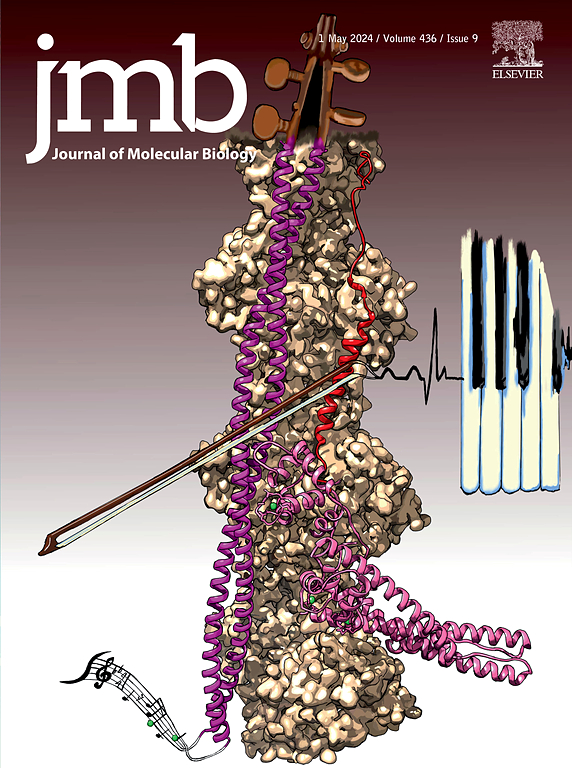CNPI: Rapid Analyses of Human Copy Number Data
IF 4.7
2区 生物学
Q1 BIOCHEMISTRY & MOLECULAR BIOLOGY
引用次数: 0
Abstract
Tools for genotyping copy number in whole-genome sequencing (WGS) data exist. Despite their availability, there are a limited number of tools that efficiently process this data at scale with rapid compute time, low memory usage, and easy to parse outputs. This is critical as WGS continues to be housed in the “cloud.” Copy Number Private Investigator (CNPI) is a computational toolkit (https://github.com/TNTurnerLab/CNPI) that performs several tasks including genotyping of regions of interest, digital karyotype determination, assessment of chromosomal sex, plotting of copy number in regions of the genome, and generation of an Individual-level Copy Number Score (ICNS). Inputs to CNPI include copy number estimates, genome-wide, from WGS data and a corresponding reference annotation file. With these inputs, CNPI can genotype any regions of the genome rapidly. For example, all genes in the genome can be genotyped in <2 s with 1 CPU and <1 GB memory. Benchmarking against gold-standard NA12878 data demonstrated good results with flexibility for users to optimize copy number thresholds based on desired sensitivity and specificity. Usage of CNPI is customizable with a variety of user-tailored functions and arguments. CNPI can be deployed to cloud based environments such as AWS lambda due to its intuitive design, near-zero cost per sample, and availability of compute resources. The application of ICNS has proven to be useful by comparing unaffected individuals to individuals with autism and 9p deletion syndrome, respectively. Overall, CNPI is advantageous for its ability to quickly provide reliable and precise copy number assessments of human genomic data.

CNPI:人类拷贝数数据的快速分析。
在全基因组测序(WGS)数据中存在基因分型拷贝数的工具。尽管它们可用,但能够大规模高效处理这些数据的工具数量有限,而且计算时间短、内存使用量低,且易于解析输出。随着WGS继续被安置在“云”中,这一点至关重要。拷贝数私家侦探(CNPI)是一个计算工具包(https://github.com/TNTurnerLab/CNPI),执行多项任务,包括感兴趣区域的基因分型,数字核型测定,染色体性别评估,基因组区域的拷贝数绘制,以及个人水平拷贝数评分(ICNS)的生成。CNPI的输入包括拷贝数估计,全基因组,来自WGS数据和相应的参考注释文件。有了这些输入,CNPI可以快速地对基因组的任何区域进行基因分型。例如,基因组中的所有基因都可以被基因分型
本文章由计算机程序翻译,如有差异,请以英文原文为准。
求助全文
约1分钟内获得全文
求助全文
来源期刊

Journal of Molecular Biology
生物-生化与分子生物学
CiteScore
11.30
自引率
1.80%
发文量
412
审稿时长
28 days
期刊介绍:
Journal of Molecular Biology (JMB) provides high quality, comprehensive and broad coverage in all areas of molecular biology. The journal publishes original scientific research papers that provide mechanistic and functional insights and report a significant advance to the field. The journal encourages the submission of multidisciplinary studies that use complementary experimental and computational approaches to address challenging biological questions.
Research areas include but are not limited to: Biomolecular interactions, signaling networks, systems biology; Cell cycle, cell growth, cell differentiation; Cell death, autophagy; Cell signaling and regulation; Chemical biology; Computational biology, in combination with experimental studies; DNA replication, repair, and recombination; Development, regenerative biology, mechanistic and functional studies of stem cells; Epigenetics, chromatin structure and function; Gene expression; Membrane processes, cell surface proteins and cell-cell interactions; Methodological advances, both experimental and theoretical, including databases; Microbiology, virology, and interactions with the host or environment; Microbiota mechanistic and functional studies; Nuclear organization; Post-translational modifications, proteomics; Processing and function of biologically important macromolecules and complexes; Molecular basis of disease; RNA processing, structure and functions of non-coding RNAs, transcription; Sorting, spatiotemporal organization, trafficking; Structural biology; Synthetic biology; Translation, protein folding, chaperones, protein degradation and quality control.
 求助内容:
求助内容: 应助结果提醒方式:
应助结果提醒方式:


